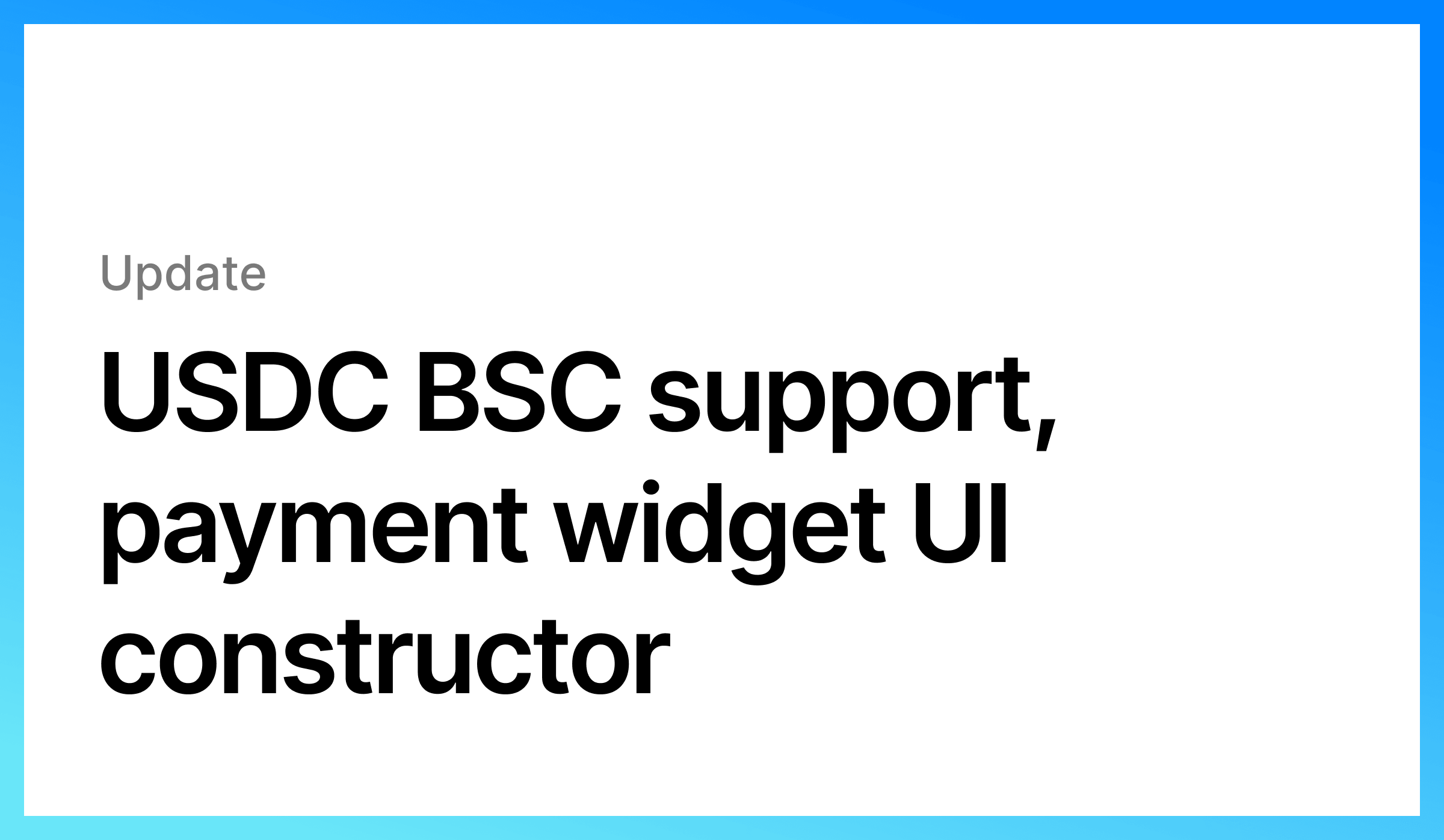Bitcoin Recurring Payments
Introduction
As the popularity of cryptocurrencies continues to soar, businesses are increasingly exploring innovative payment methods to cater to their customers' preferences. With the rise of crypto subscription payments, there's a growing interest in leveraging digital currencies for recurring transactions. In this guide, we'll delve into the intricacies of setting up and managing Bitcoin recurring payments, exploring the benefits, challenges, and best practices for businesses looking to embrace this emerging trend. Whether you're a seasoned cryptocurrency enthusiast or new to the concept, this guide will equip you with the knowledge to navigate the world of Bitcoin recurring payments effectively.
The State of Crypto Subscription Payments
While crypto subscription payments remain somewhat limited, various initiatives aim to broaden their availability. Among these, BitPay stands out, having collaborated with industry giants like Microsoft and Shopify. Additionally, companies like PayPal, Square, VISA are integrating crypto payments into their platforms, suggesting a growing acceptance of digital currencies among businesses and consumers alike.
Subscribing to a VPN (Virtual Private Network) service using crypto is a popular use case, offering privacy-conscious users a secure and anonymous way to protect their online activities.
This trend bodes well for individuals seeking to utilize crypto for subscription payments, as it enhances accessibility and expands the range of businesses accepting such transactions.
History of Subscription Payments
Contrary to common belief, subscription payments have historical roots dating back to the 17th century. During this period, books, newspapers, and periodicals leveraged recurring payments for monetization. In early American society, citizens subscribed to town criers for community updates. Renowned writer Charles Dickens notably utilized subscription payments, earning significant income and receiving payment throughout his writing process.
Subscription Payments Today
In recent years, the subscription economy has experienced remarkable growth, more than doubling in size over the past five years. This surge is fueled by innovations like credit cards and the internet, simplifying subscription billing processes. Major players like Netflix and Spotify exemplify this model, offering recurring access to services for a monthly or yearly fee. Today, subscriptions cover a vast array of products and services, facilitated by platforms like Zoura and Stripe, streamlining recurring payments for merchants and consumers alike.
Advantages of Crypto Subscription Payments
Cryptocurrency is gaining traction as a preferred payment method for subscriptions due to several advantages:
Community-driven
Cryptocurrency projects are often community-focused, fostering high engagement levels, ideal for subscription businesses seeking close customer relationships.
Lower fees
Crypto transactions typically incur lower fees compared to traditional methods, reducing costs for businesses, especially for numerous small transactions.
Instant settlement
Unlike credit card payments, crypto transactions settle instantly, bypassing intermediaries and lengthy processing times.
Fraud resistance
Cryptocurrency transactions are secured with digital signatures, thwarting fraudulent activities more effectively than credit cards.
Global accessibility
Cryptocurrency enables seamless cross-border transactions without currency conversion fees or country-specific restrictions.
Censorship resistance: Decentralization ensures businesses aren't subject to censorship by governments or financial institutions, enhancing freedom in commerce.
Challenges of Cryptocurrency Subscription Payments
Challenges accompany Cryptocurrency subscription payments:
Push vs. pull
Cryptocurrencies like Bitcoin and Ethereum lack merchant-initiated transactions, complicating recurring payments setup.
Volatility
Fluctuating Cryptocurrency values pose pricing challenges for businesses, affecting invoicing accuracy and revenue stability.
Network congestion
Ethereum's variable gas fees impact transaction costs, especially during market surges, hindering affordability for low-value subscriptions.
High switching costs
Limited merchant acceptance and irreversible transactions deter customers accustomed to traditional payment safety nets.
List of Past Crypto Subscription Attempts
While enthusiasm surrounds crypto subscription payments, the industry remains fledgling, with past attempts hampered by the absence of stable assets.
ERC 1337
Initiated in 2018, this project by Ethereum developers aimed to address the technical limitations of crypto subscription payments. However, progress has been limited since its inception.
Groundhog
Developed by the co-authors of ERC 1337, Groundhog enabled recurring payments on Ethereum. Businesses leveraged stablecoins like USDC or DAI for reliable crypto subscription payments.
Sablier
Introduced in 2019, Sablier offered a finance protocol for real-time crypto subscription payments. Its goal is to facilitate seamless money streaming between parties, aiming to become the "Paypal of crypto." Several notable companies have embraced its service, marking its success in the market.
The Future of Crypto Subscription Payments
While previous attempts show promise, no fully successful crypto subscription payment projects exist yet. The dynamic nature of the space leaves room for growth and development, indicating potential for a groundbreaking project to emerge. With the right features and user adoption, crypto subscription payments could revolutionize the cryptocurrency industry.
Why You Should Try Calypso Pay
Calypso Pay provides a flexible crypto gateway solution, empowering your business with recurring payments and doubling churn reduction.
Benefits:
- Seamless integration with over 170 crypto wallets
- Effortlessly manage and adjust user subscriptions
- Utilize proven methods to enhance customer retention
- Tailor personalized offers for your clientele
- Control subscription payment processes with ease
- Customize cancellation and renewal workflows for user subscriptions
Access over 14 Billion Users with Calypso Pay Recurring Subscriptions, boasting an average Lifetime Value (LTV) of 200 billion USD. Integrate Crypto Subscriptions for your business for free.
Conclusion
In conclusion, the evolution of crypto subscription payments signifies a promising shift in digital commerce. Despite past challenges, the rise of stablecoins and innovative projects like Sablier show potential for widespread adoption. While hurdles like volatility and network congestion persist, the benefits of lower fees, instant settlement, and global reach outweigh the drawbacks. With platforms like Calypso Pay offering streamlined solutions, businesses can tap into a vast market of crypto users, enhancing customer engagement and retention. As the landscape continues to evolve, embracing crypto subscription payments opens doors to new opportunities and advancements in the digital economy.
FAQ
What is a crypto subscription?
A crypto subscription is a payment method where users pay for goods or services using cryptocurrency on a recurring basis, usually monthly or annually.
What is the best crypto payment?
The best crypto payment method depends on individual preferences and needs. Options include Bitcoin, Ethereum, and stablecoins like USDT, USDC or DAI.
Can you do recurring payments with crypto?
Yes, recurring payments with crypto are possible through various platforms and payment processors that support subscription-based models.
Should I buy Bitcoin recurring?
Buying Bitcoin recurring can be a strategy for long-term investment, but it depends on individual financial goals, risk tolerance, and market conditions.
What are examples of recurring payments?
Examples of recurring payments include subscription services like Netflix, Spotify, gym memberships, VPN, utility bills, and insurance premiums.






